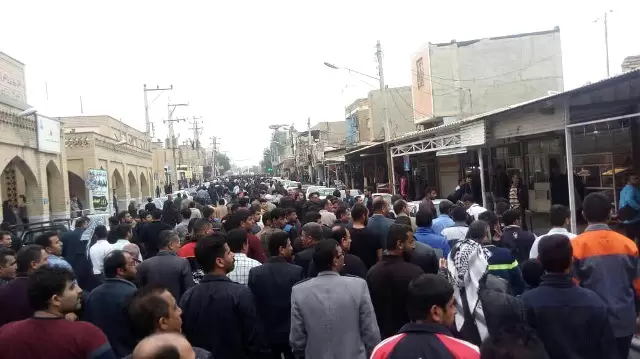Iran: Hungry sugar workers amid massive corruption

The people of Iran have not only paid a high price for the authorities’ bungled response to the spread of the coronavirus. The country is gangrened by massive corruption, and workers pay the price.
Omid Asadbeigi, owner of the giant Haft Tapeh agro-industrial sugar complex in Shush, is currently on trial in Tehran along with twenty other defendants charged with currency smuggling, illegal transactions and bribery totaling some USD 1.4 billion, a huge sum of money in cash-strapped Iran. According to state television, the prosecutor called the operation ‘a new national record’. Asadbeigi and the others are accused of using privileged access to hard currency loans at a special rate to sell the money on the market at three times the price.
The dollars for Haft Tapeh were ostensibly to finance investment in new machinery for the country’s leading sugar producer. Asadbeigi acquired the state-owned company in a murky deal in 2015 at a fraction of its value. At the time, the company was substantially in arrears to the social security system and workers’ wages were unpaid for many months at a time. The recent cash gift to the owner has changed nothing; Haft Tapeh workers have not received their wages since mid-March; drivers have not been paid since February.
In 2008, the Haft Tapeh workers established an independent union, affiliated to the IUF, in the course of a 42-day strike over unpaid wages. They have been compelled to resort to strikes and demonstrations ever since in the face of massive, periodic wage arrears. Rather than acting to ensure payment of wages and benefits, the regime periodically calls on the army and police to repress worker protests. Haft Tapeh workers were demonstrating for their wages when Iran was rocked by a national uprising of the urban poor in November last year, causing Haft Tapeh to close. They returned to work in December, their wages still in arrears, and now the cycle of poverty and corruption has begun again.
Haft Tapeh workers demonstrate in Shush in November 2019 to demand their unpaid wages
In the opaque world of Iranian politics, trials and criminal prosecution are used to settle internal disputes between ruling factions. Whatever verdict emerges from the courtroom, it will be impossible to map the precise circuit of corruption which gave a company access to a massive hoard of hard currency while starving its workers. For the IUF, the essential matter is this: all Haft Tapeh workers must be paid their full wages and benefits regularly and their union must be recognized by the company and the regime.